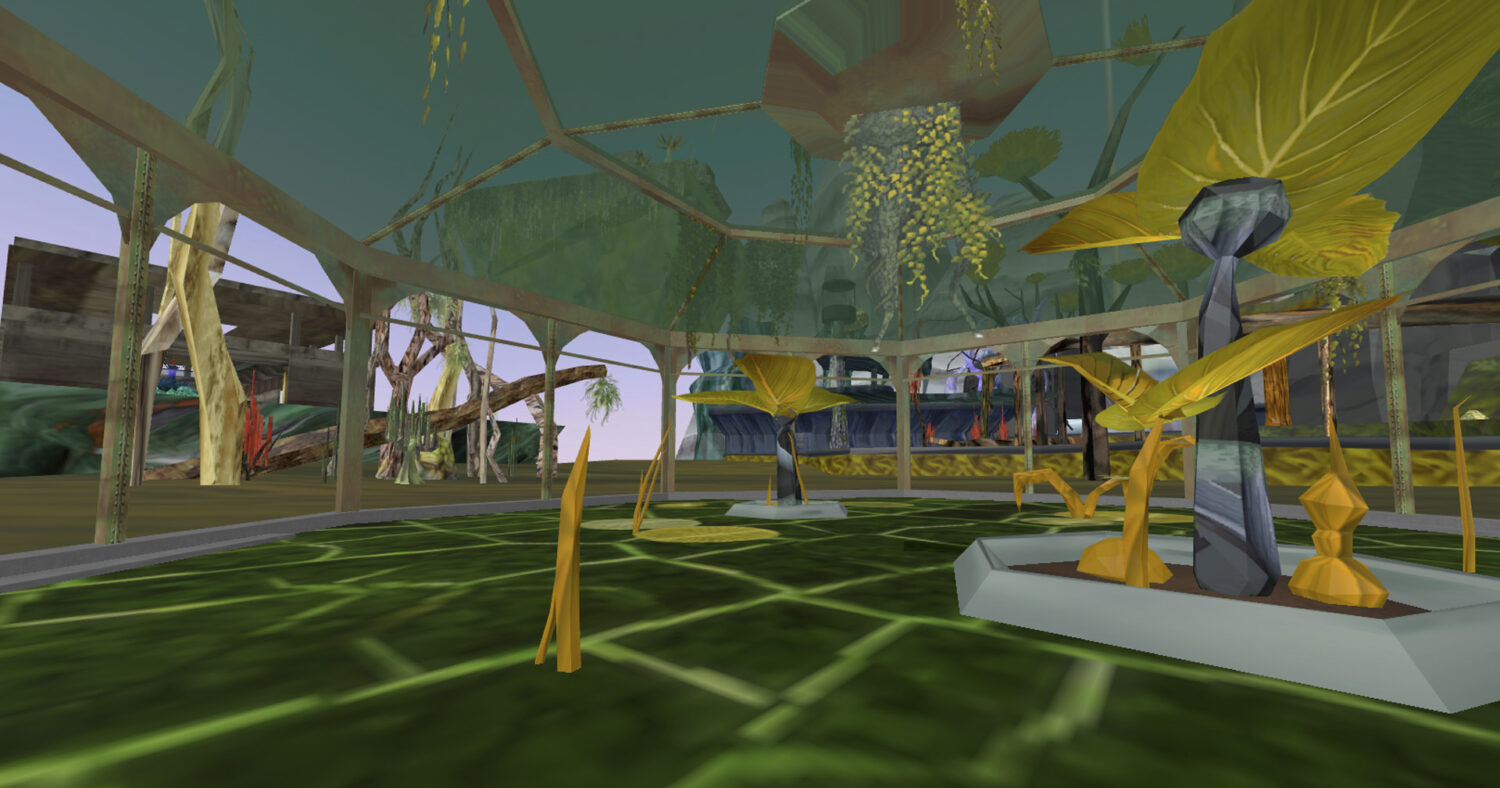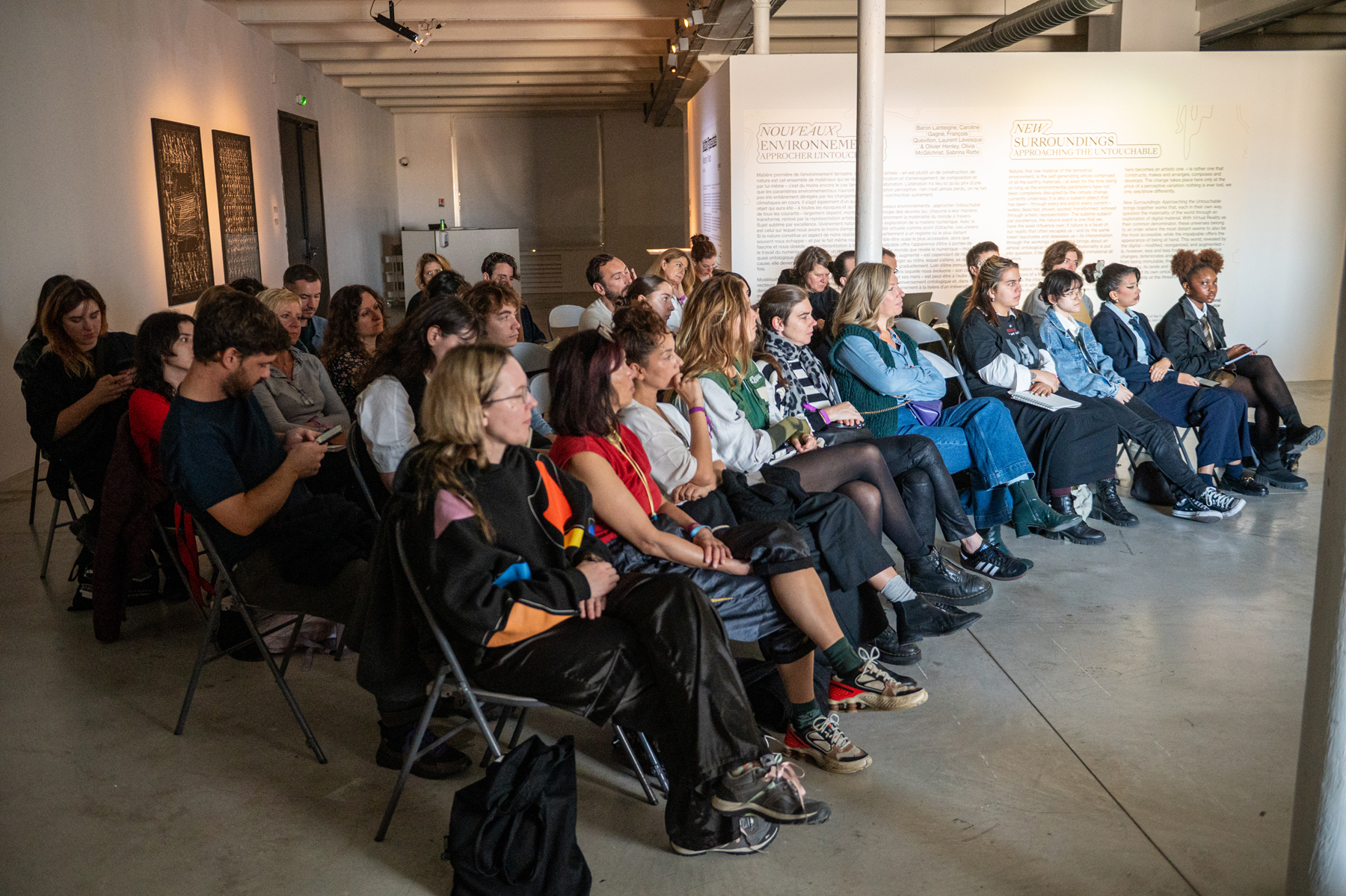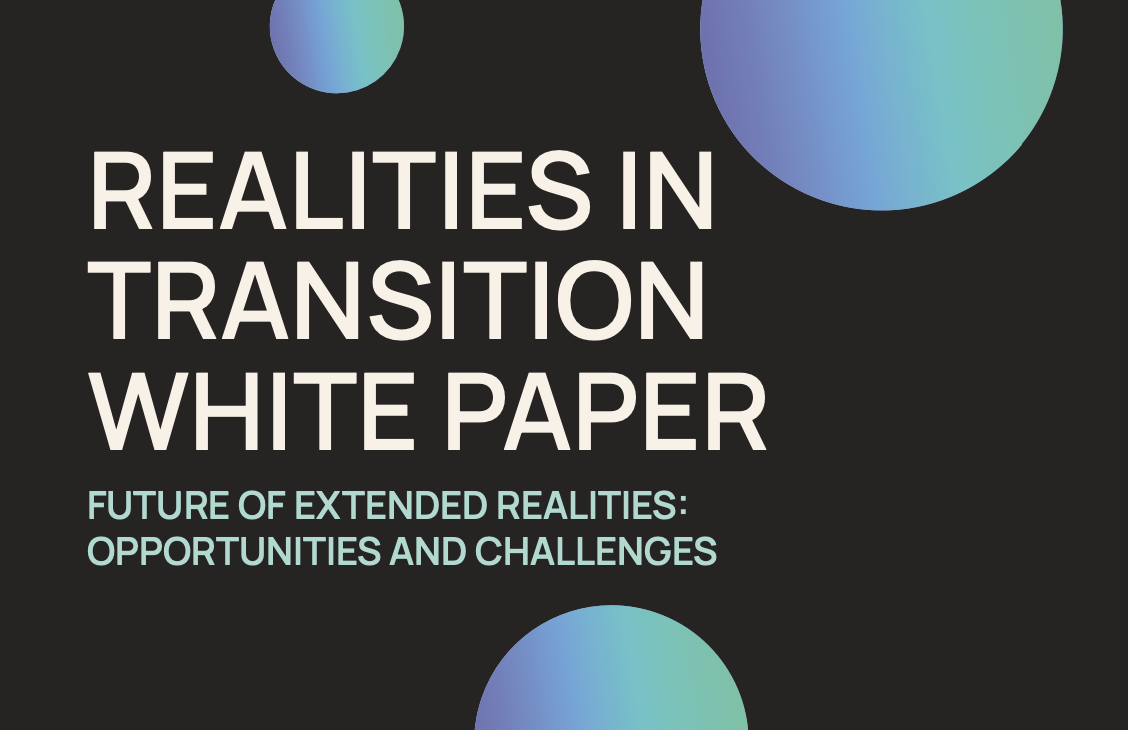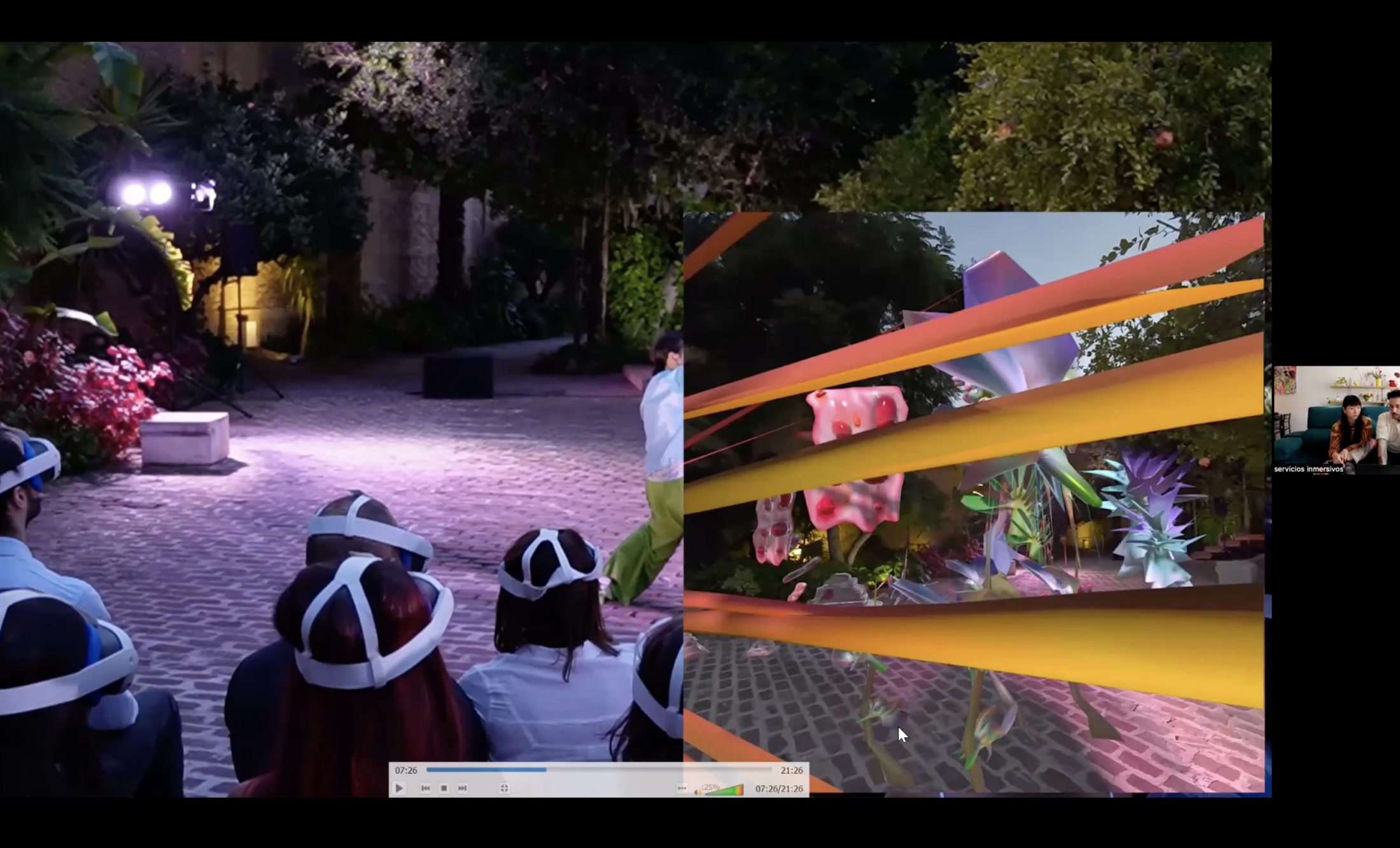Overte.org – An example of a truly decentralised Metaverse.

Both technologies and platforms are self hosted and open source, and are examples of a different approach on Metaverse building, where questions like ownership, sustainability and open knowledge are taken into account.
Although there is a general consensus about the fact that the metaverse could potentially have a positive impact on the environment and climate change by enabling remote working on a new level, reducing the need for physical travel and carbon emissions, to simulate and test sustainable practices, before implementing them in the physical world, however, the energy consumption and carbon footprint of the technology that powers the metaverse must also be considered. Since the expansion of virtual worlds will further increase global energy demand, this will increase the need for green energy generation.
This is significantly true for centralised Metaverses that are hosted on data centers serving thousands of users globally. On the other hand, locally hosted and truly decentralized virtual worlds not only reduce the impact of such infrastructures in one single place but also provide more control to the artists and developers over their creations. Hosting virtual worlds locally helps to reuse the already existing technological infrastructures and computers and, although it might not be as fast as supercomputers, they allow us to be more aware of the actual costs of technology, maybe valuing it more.
L.E.V. Festival, as partner of Realities in Transition, has developed an informal research on the idea of Metaverse, pointing out different thoughts and techniques on how to approach this idea from a different perspective.
Such research has materialised with the following materials, that are collected here:
The program notes of the Exhibition “Metaverses: Realities in Transition” presented at LEV Matadero 2022, reflected on the idea of Metaverse as a cultural good, challenging its definition as digital marketplace and bringing examples of community driven, artistic oriented virtual spaces where everyone can join and share, discuss, play or just hang out in an artistic environment. One of the pieces shown there was the virtual exhibition “Planet LEV”, available on the STEAM Platform and co-produce by LEV Festival and the art collective Children of Cyberspace.
The talk “Exploring the Metaverse: our insight on its definition, history and original cases”, where a brief history of virtual reality, and its reception socially, among other aspects are described.
The hackathon: “Recycling the AI”, hosted at the first XR Camp in Zagreb, dedicated to the open source technology A-frame, to host virtual worlds easily on a local web server. The guidelines created for that hackathon describe the technical process in detail.
The talks and events hosted at Betacamp, specially the presentation from LaTurbo Avedon, Dandelion, wishes in the era of Simulation, the association ArsGames about the role of games as virtual places in society, and the journalist Patricia Horrillo about the wonderful project The Uncensored Library, all of them available at the Vimeo channel of Betacamp.
The educational activity “Multiverse La Cabrera”, where the impact of Augmented Reality to transform the collective imaginary of rural places is described and evaluated through a case study.
The set of presentations hosted at LEV Matadero 2024 about the future of designing virtual worlds, specially the talk held by the multi awarded artist Hsin-Chien Huang.
The second hackathon, “Avatar VR Sculpting”, where free and accessible tools are explored for the design and creation of Avatars for VRChat, with the awarded artist Rick Treweek aka. Metarick.
And finally, with this last guidelines, LEV Festival shares the experience of hosting a virtual scene in the Overte Platform, sharing with its wonderful community their corner at the metaverse, and closing this research but hoping to continue learning and sharing with our audience, our invited artists and our community.
Installing Overte – Metaverse




